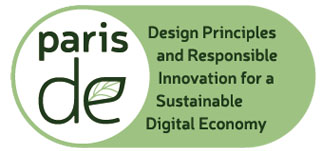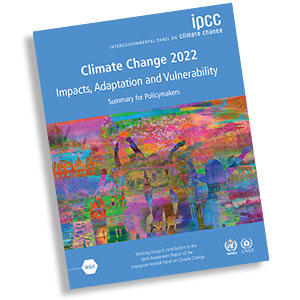Carbon emissions from digital technology are large and steadily increasing. It is estimated that emissions from this sector are currently between 2.1-3.9% of the global carbon footprint, and it is expected that these figures will continue to increase as technologies such as Artificial Intelligence (AI), Blockchain and video streaming become more widely used. However, some of these same technologies may also power the tools to better understand, monitor and act on climate change. It is essential that those innovating in the digital sector are aware of the complexities of digital technology’s environmental impact and are supported to work towards reducing the carbon emissions of the products and systems they create – ensuring the digital sector can contribute positively towards more sustainable futures. The objective of PARIS-DE is to investigate and co-design with leading organisations in industry and government, a framework that facilitates a process of responsible innovation built on sustainable design principles.
Looking at this in more detail, digital innovations play an important role in helping us understand our environment and the impact we have on it. For example, sensors in nature and our homes provide great amounts of data to be processed through ever improving computers and AI systems. The information gathered can help us make sense of a range of issues, from how much energy we use in our daily activities to how climate patterns are changing. Having this knowledge can help us find solutions to reduce our energy consumption and our greenhouse gas emissions.
All this technology, however, has a cost. Carbon emissions from technology are large and steadily increasing. It is estimated that the emissions of digital technology are currently between 2.1-3.9% of the global carbon footprint when its full life cycle and supply chain emissions are considered. As a comparison, aviation’s carbon footprint is estimated to be 2.5% of global emission. It is expected that these figures will continue to increase as technologies such as AI, Blockchain and video streaming become more widely used.
There are also systemic issues to consider. Efficiencies in digital products and processes that you would think would help reduce emissions, in fact lead to increases in demand, infrastructure and production that counteract and sometimes surpass those efficiency gains in what are called ‘rebound effects’.
It is therefore essential that those creating innovations in digital technology consider possible impacts of their creations on the environment and their carbon emissions. The objective of PARIS-DE is to research and co-design with leading organisations in industry and government, a framework to enable responsible innovation built on sustainable design principles.
We will be using virtual labs to create and deploy the framework that will provide information and tools for those working in the innovation of digital technology to understand, plan and act on their carbon footprint with the aim to keep digital technologies’ emissions in line with the Paris Agreement. Another benefit of virtual labs is improving the transparency of data by making it easier to access the code and data used in calculating carbon emissions. The framework will be centred around the principles of Responsible Innovation and will also consider the wider, ethical impacts that digital innovations can have in society how innovators’ values can be exposed through our framework to bring change to the ICT industry.
In this site you find some publications that explain the background of this research. We will continue to add our papers, talks, presentations and policy recommendations as well as news in this area. Get in touch if you want to find out more about what we are doing and how we can collaborate.


